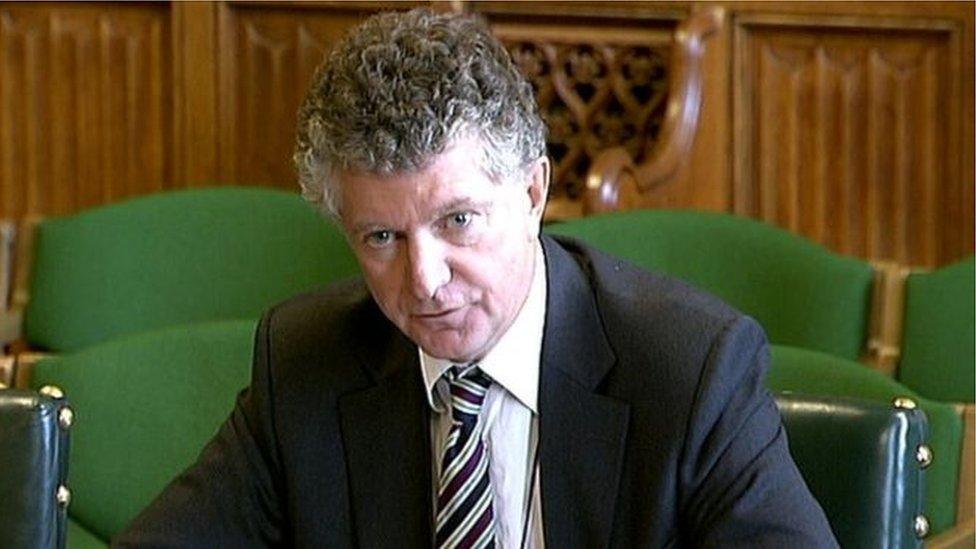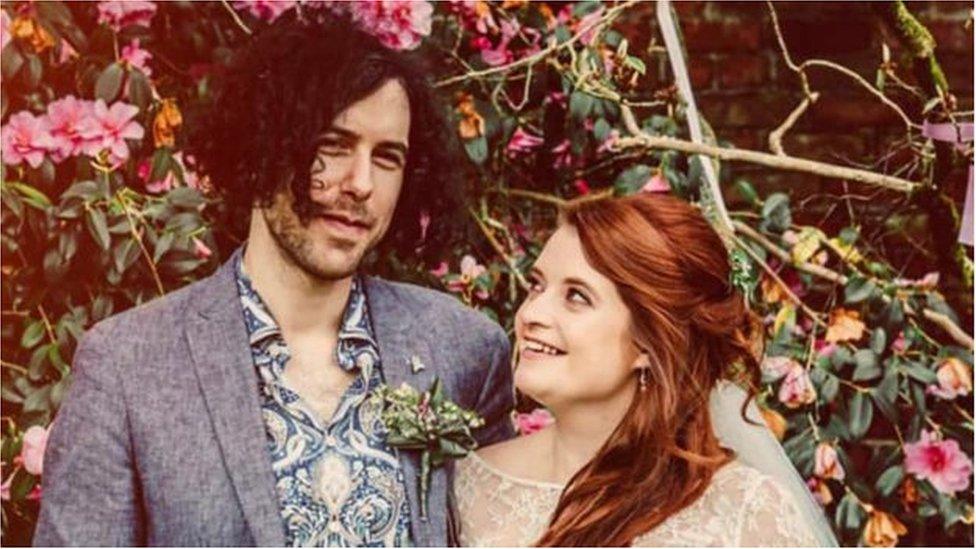Emma De Souza: Citizenship legislation needs 'sorting out', says Jonathan Powell
- Published

Mr Powell said according to the Good Friday Agreement, you can be 'Irish and British in Northern Ireland.'
Former NI talks negotiator Jonathan Powell has said that someone is going to have to "sort out" citizenship legislation in relation to the De Souza court ruling.
Tribunal judges ruled on Monday that people born in NI remain British citizens according to the law, even if they identify as Irish.
The Good Friday Agreement allows people to identify as British, Irish or both.
In 2017, NI woman Emma De Souza won a case on the issue.

Emma De Souza with her husband Jake
The Home Office deemed she was British when her US-born husband applied for a residence card, making the application under her Irish passport.
But on Monday, an immigration tribunal upheld an appeal of the case, brought by the Home Office.
Mr Powell, Tony Blair's former chief of staff, said that on the surface, Ms De Souza is right, as "according to the Good Friday Agreement, you can be Irish and British in Northern Ireland".
He added: "I understand that the legislation that's being appealed pre-dated the Good Friday Agreement, so no-one got round to bringing the legislation into line with an international binding treaty.
"So somebody somewhere in government will have to sort this out."
He added: "I suspect that this is just sloppiness that someone never thought about the legislative implications of it."
'Out of spirit'
On Tuesday, Taoiseach (Irish prime minister) Leo Varadkar said the De Souza court ruling is "out of spirit" with the Good Friday Agreement.
Speaking in the Dáil (Irish lower house of parliament) on Tuesday, Mr Varadkar said the Good Friday Agreement allows people in Northern Ireland to be British, Irish or both.
He said he would raise the case on Thursday or Friday when he meets Prime Minister Boris Johnson.
Anyone born in Northern Ireland has the right to identify as Irish or British or both, as a result of the Good Friday Agreement, signed in April 1998 by the British and Irish governments and Northern Ireland's political parties.
The agreement said the British and Irish governments would: "Recognise the birthright of all the people of Northern Ireland to identify themselves and be accepted as Irish or British, or both, as they may so choose, and accordingly confirm that their right to hold both British and Irish citizenship is accepted by both governments and would not be affected by any future change in the status of Northern Ireland."
A Home Office spokesperson said it was pleased the tribunal agreed that UK nationality law was consistent with the Good Friday Agreement.
"We respect the right of the people of Northern Ireland to choose to identify as British or Irish or both and their right to hold both British and Irish citizenship," the spokesperson added.
- Published16 October 2019
